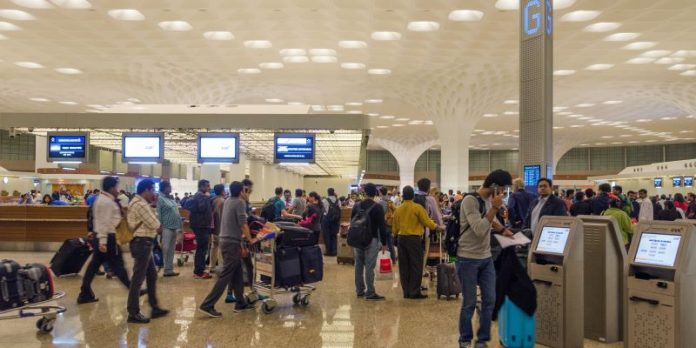943 Dry Coconuts Seized At Mumbai During May Alone
Baggage clearance picks up at 20 to 30 seconds apiece, CSMIA clears 14,400 bags an hour between the two terminals
MUMBAI, Sep 25 (The CONNECT) – As Chatrapati Shivaji Maharaj International Airport (CSMIA) becomes a hub celebrating India’s rich culture during the festive season, the officials have launched a diligent safety drive with stringent protocols.
Lately, there has been a noticeable increase in the rate at which check-in baggage is being declined at airports. While CSMIA deeply understands the emotional importance attached to certain religious items, especially during festive periods, some of these seemingly harmless items can potentially be life-threatening and pose grave safety and security risk.
This rising trend in the rejection rate of check-in baggage can largely be attributed to a lack of awareness among general travellers regarding items that are prohibited or dangerous to be carried in the aircraft. Passengers must prioritize knowing and comprehending the guidelines issued by the airport or airlines concerning items that are considered hazardous and prohibited.
Some of the prohibited items frequently found in check-in baggage could be listed as follows:
- Dry coconut (copra)
- Fireworks, flares, or party poppers
- Matches
- Paint
- Fire Camphor
- Ghee, pickles, or other oily food items
Some other items that are considered top culprits include e-cigarettes, lighters, power banks, spray bottles to name a few. Unbeknownst to many passengers, all these items pose potential risks to flight safety when mishandled or stored improperly. These items are typically known to be associated with fire hazards, explosions, or interference with the aircraft’s electrical systems.
The proportion of check-in bags that were rejected compared to the total number of screened bags, increased from 0.31% in December 2022 to 0.73% in May. During May 2022 alone, the security team at Mumbai Airport confiscated a total of 943 dry coconuts from passengers’ check-in bags.
Dry coconut contains high amount of oil which is highly flammable and can cause fire if it encounters heat inside the aircraft. The Bureau of Civil Aviation Security (BCAS) added it to the list of prohibited items in March of the previous year, with the majority of passengers still lacking awareness about this inclusion.
CSMIA’s management, along with its highly skilled staff and cutting-edge technology for baggage handling, effectively identifies and separates luggage containing the mentioned prohibited items. The In-Line Security team shoulders immense responsibility, safeguarding both passengers and the airport itself. Their expertise is evident as they meticulously inspect each bag, a process that takes just 20 to 30 seconds per bag. Accuracy being paramount, with a need to maintain 100% precision to guarantee the safety of all passengers. A staggering total of 10,850,465 bags were managed at CSMIA from December 2022 to May 2023.
The In-Line Security team’s efficiency allows them to swiftly identify any suspicious items within seconds and prevent such bags from making their way onto the aircraft. The baggage system at CSMIA is an impressive feat, boasting an approximate 8-kilometer baggage belt that handles a remarkable capacity of 9,600 bags per hour at Terminal 2 and 4,800 bags per hour at Terminal 1. With their dedication and vigilance, the In-Line Security team ensures that bags dropped at the airline security counters are rigorously screened, cleared, and promptly delivered to the baggage handlers in approximately 10 minutes. This commitment to safety underscores the seamless and secure travel experience provided by CSMIA.
Passengers must familiarize themselves with the list of prohibited items and the guidelines provided by the airport and airlines, CSMIA said. Safety during air travel is a shared responsibility among passengers, airports, and airlines. While airports and airlines play a crucial role in security, passengers must also pack responsibly and mindfully. Together, we can ensure safe journeys.




